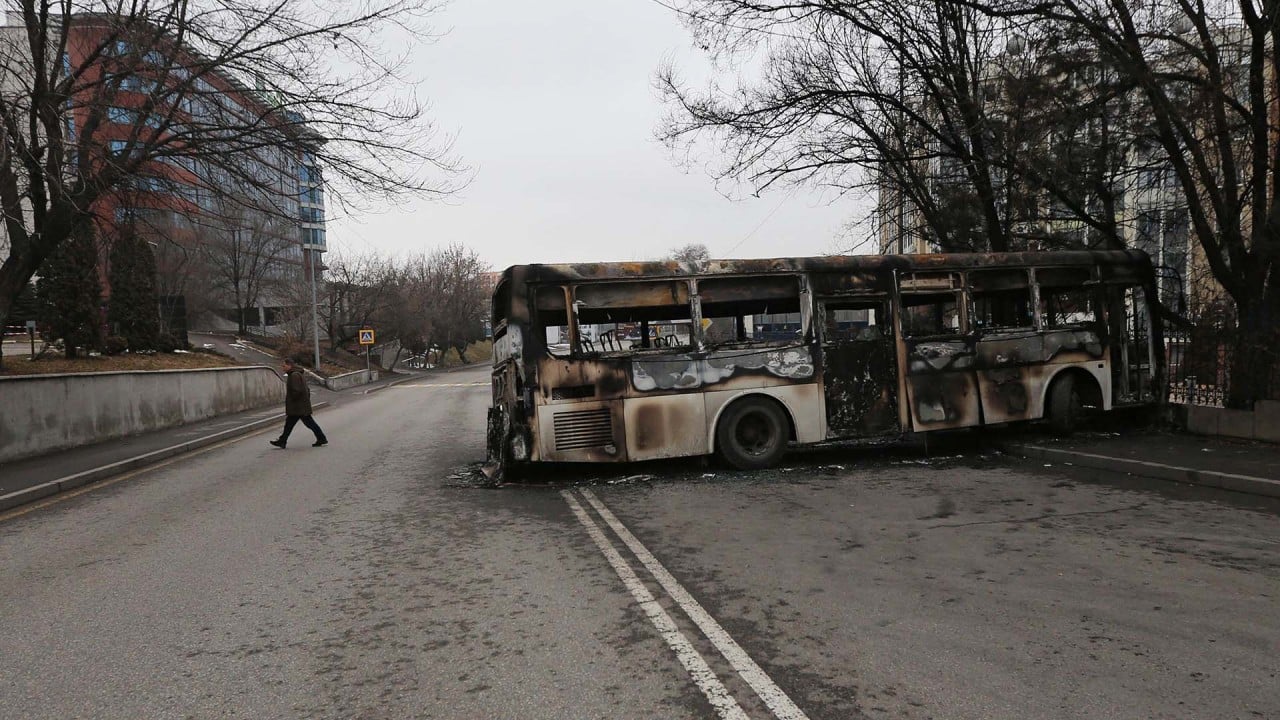
Kazakhstan strongman Nursultan Nazarbayev says he’s retired after deadly unrest
- The former president made his first appearance since violent riots earlier this month led to a purge of his allies
- Nazarbayev, 81, ruled Kazakhstan for three decades and retained substantial influence even after handing the reins to successor Kassym-Jomart Tokayev
Kazakhstan’s leader-for-life Nursultan Nazarbayev made his first public appearance since deadly protests in early January led to a purge of his allies as President Kassym-Jomart Tokayev sought to reassert control in the central Asian nation.
“There is no conflict or opposition within the elites,” Nazarbayev said in a recorded video statement posted Tuesday by his press office. “In 2019, I passed my presidential powers to Kassym-Jomart Tokayev and have retired since.”
Nazarbayev, 81, ruled Kazakhstan for 30 years until 2019, when he installed Tokayev as president while retaining substantial influence in the country’s repressive political system.
His lack of visibility since the clashes, combined with Tokayev’s moves to sideline many of his allies and family members, raised questions about a rift between the ruling elites.
One of Tokayev’s first major moves when protests over surging fuel prices turned violent was to replace Nazarbayev as head of the Kazakh security council.
“Nazarbayev’s robust endorsement of Tokayev suggests that the preliminary negotiations over the exit of the Nazarbayev family have been completed,” said Kate Mallinson, the founder of Prism Political Risk Management in London. “Tokayev has secured total control over the apparatus of state.”
Authorities said 225 people died, including 19 law-enforcement officers, in the unrest, which was the most serious challenge to the leadership of the energy- and mineral-rich nation since independence in 1991.
Nazarbayev began ceding authority even before the wave of protests. In November he stepped down as chairman of the ruling Nur Otan party and transferred his powers to Tokayev.
Powerful Kazakhstan ex-leader is main target of protesters’ anger
However, the process accelerated after order was restored with the help of troops from Russia and other post-Soviet states. Tokayev dismissed several of Nazarbayev’s relatives from key posts, including the first deputy head of the security service, and named a new prime minister.
Security service chief Karim Massimov, a key ally of the first president, was detained and accused of treason.
Tokayev also targeted Nazarbayev in a speech last week, saying he had allowed the rise of oligarchs whose influence on the economy had choked off competition.
Nazarbayev called for people to support Tokayev’s reform agenda and said he never left the country’s capital during the unrest. The capital was named Nur-Sultan after him in 2019 by Tokayev, who is now facing public demands to revert it to the former name Astana.


